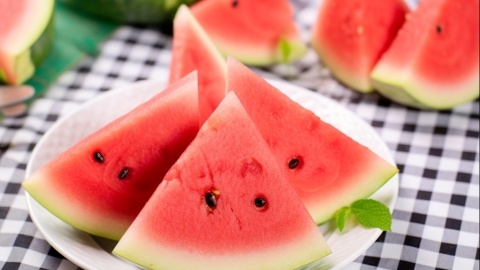Can diabetics eat watermelon?
Generally, diabetic patients can consume a small amount of watermelon when their blood sugar levels are stable, not exceeding 200 grams each time. However, if blood sugar levels fluctuate greatly or remain at a high level, consumption is not recommended. If in doubt, it is advisable to consult a healthcare professional in advance. Detailed analysis is as follows:

If diabetic patients maintain their blood sugar within a reasonable range through dietary management, exercise, or medication, a small amount of ripe watermelon between meals can help replenish water and vitamins. Moreover, the dietary fiber in watermelon can, to some extent, delay sugar absorption and assist in maintaining stable blood sugar levels.
However, if diabetic patients have poor blood sugar control recently or experience persistently elevated fasting blood glucose levels beyond 7.0 mmol/L or postprandial blood glucose levels exceeding 11.1 mmol/L two hours after meals, the natural fructose in watermelon may easily cause further elevation of blood sugar, increasing the metabolic burden on the body. Consuming large quantities at once may also lead to a sudden spike in blood sugar, increasing the risk of complications such as ketoacidosis.
Diabetic patients should monitor their blood sugar before consuming watermelon to confirm their current glycemic status. One to two hours after consumption, blood sugar levels can be checked again to understand how the body reacts to watermelon. If a significant increase in blood sugar or any discomfort occurs after consumption, intake should be stopped immediately, and professional advice should be sought to adjust the dietary plan.










